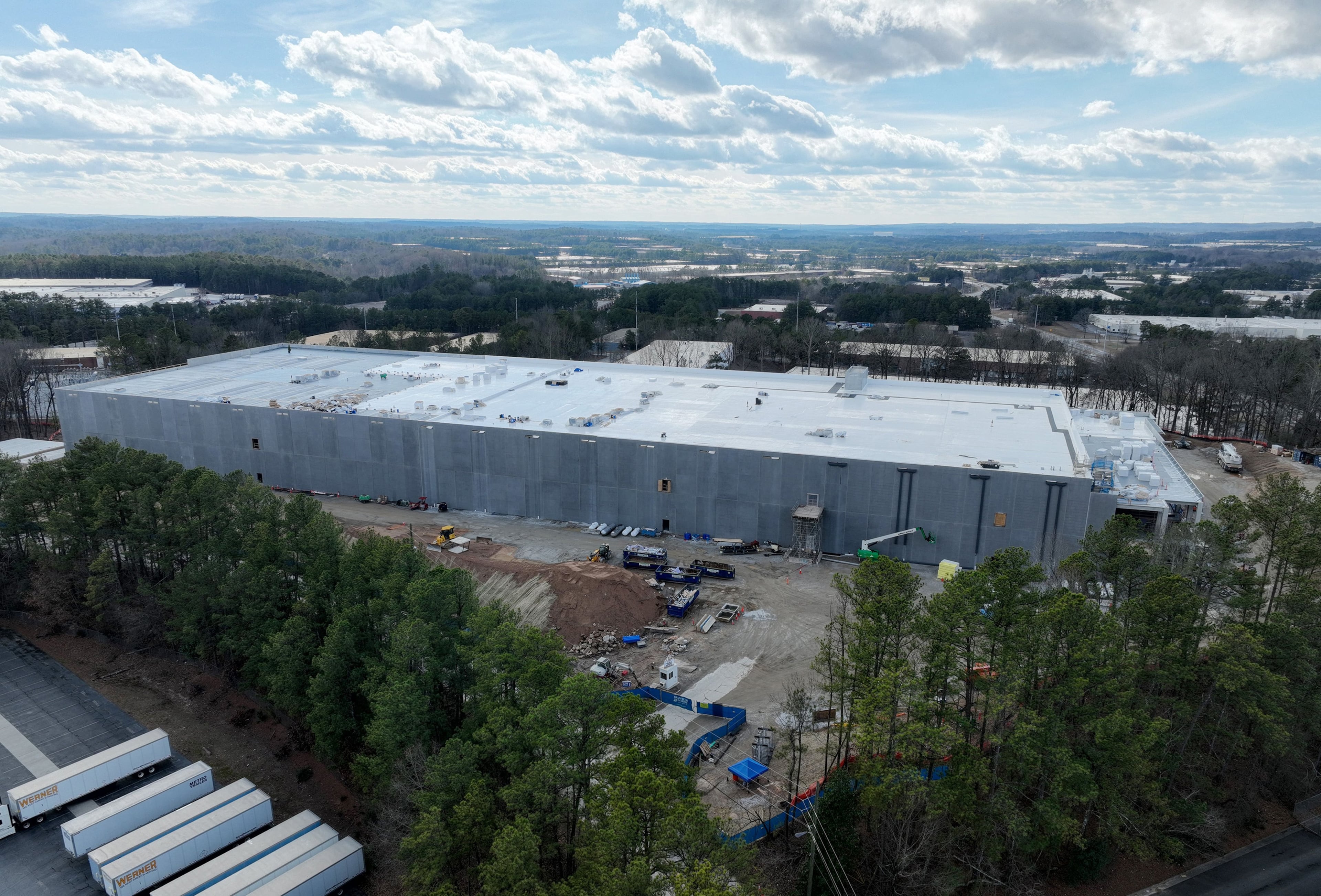Amazon plans $11 billion data center expansion in Georgia
Amazon said Tuesday it plans to spend at least $11 billion on new data center capacity in metro Atlanta to respond to the huge demand in computing power from the rise of generative artificial intelligence.
Amazon Web Services, a division of the e-commerce giant, said it will make the investments in facilities in Butts and Douglas counties, south and west of Atlanta respectively. The pair of projects combined would likely rank as the largest corporate investment in state history by dollar amount and exceed the capital expenditure of the state’s largest economic development project, the $7.6 billion Hyundai Motor Group electric vehicle factory near Savannah.
Amazon said the projects will also employ at least 550 workers, including “data center engineers, support engineers, network specialists, engineering operations managers, security specialists” and other roles. An Amazon spokesperson declined to say the precise locations of the data centers citing security and customer privacy reasons.
Data centers have become big business across the U.S., with metro Atlanta emerging as a hotbed for the fast-growing industry, and Georgia and many county and municipal governments have offered lucrative tax breaks to build here. The high-tech projects are effectively gigantic warehouses that store computer servers that power the internet, cloud services and artificial intelligence.
The Associated General Contractors of America in a report released Wednesday said the sector that construction contractors are the most bullish about for projects to expand this year is data centers, according to a survey.
But the projects are not without controversy, demanding huge amounts of power and water to keep them running. Data center opponents say the facilities typically create few full-time jobs relative to their enormous physical and resource footprints.
Some local governments and state lawmakers have begun to push back on their proliferation around the metro Atlanta area. Though some projects are still moving forward, last year the Atlanta City Council approved a ban on new data centers within a half-mile of the 22-mile Beltline loop and MARTA hubs, including heavy rail stations and bus-rapid transit stops.

Still, leaders in Butts and Douglas counties cheered Amazon’s announcement and the economic jolt they say it will bring to their communities.
“This is a historic day for Douglas County,” Dr. Romona Jackson Jones, Douglas County Commission chairperson, said in a news release. “We are pleased to welcome AWS to bring the most secure, resilient, and advanced cloud computing technology to the county, and with it hundreds of high-paying, high-tech jobs that will benefit our community and our citizens for the long term.”
Last year, the Georgia General Assembly also passed legislation that would have revoked a lucrative tax break for data centers. But after aggressive industry lobbying efforts, Gov. Brian Kemp vetoed the bill to keep the incentives in place.
A spokesperson for Georgia’s Department of Economic Development said the state did not offer Amazon discretionary incentives, which can include grants and other incentives. But the company would undoubtedly qualify for sales and use tax exemptions reserved for the largest data center developments, known as hyperscale projects.
For years, Northern Virginia had been the epicenter of the country’s data center market. But lately, developers have increasingly targeted undeveloped land in metro Atlanta to build massive server farms. By midyear, data center construction had increased 76% in the Atlanta market compared to the same time last year, the most among North America’s eight data center primary markets, according to real estate services firm CBRE.
Lynn McKee, the director of the commercial real estate program at Georgia State University’s Robinson College of Business, said metro Atlanta checks many of the boxes for data center requirements.
“They need land, they need approvals and they need power,” he said.
McKee said facilities like the ones Amazon is set to build offer local governments a dramatic tax revenue boost, but agreed there are potential downsides to the data center bonanza. Among them, he said, is their enormous energy demands, which could increase electricity bills for other customers.
“It’s incumbent upon our utilities to make sure that as they build out more capacity to serve these data centers, they’ve got to find a way to make sure they are paying their fair share, if not a little more,” McKee said.
Utilities, including Georgia Power — the state’s largest electric utility — are already building new power plants, largely to meet the energy demands of data centers. The utility has said its approved plans to serve the facilities will actually drive down electricity rates for other customers, but critics have questioned their claims.
Georgia Power is set to file its next long-range energy road map at the end of this month, which will shed more light on how it will serve the region’s data center industry. It was not immediately clear whether Georgia Power or one of the state’s electric membership cooperatives would provide electricity for Amazon’s facilities.
Butts Commission Chairman Russ Crumbley said he was “pleased and proud” that Amazon has chosen to locate its new data centers in the county.
“Their investment will be the most significant in Butts County history, and represents a truly collaborative effort for more than a year by the Butts County Board of Commissioners, the Development Authority of Butts County, the Butts County Water and Sewer Authority, and the Butts County School System,” Crumbley said in a news release.
Bob White, executive director of the Development Authority of Butts County, said the authority offered Amazon property tax savings for locating its facilities in the county through a deal reached in collaboration with the County Commission and board of education. White did not specify the exact amount the company could save, but said it will be determined by the size of Amazon’s investment.
In return, White said Butts County will collect fixed payments from Amazon to fund “public infrastructure and services,” like schools, water and wastewater upgrades, roads, bridges and more.
Chris Pumphrey, the president of the Elevate Douglas Economic Partnership, said the Douglas County Board of Commissioners approved a 15-year property tax break for the company. Pumphrey estimated Amazon’s investment would bring the county $100 million in property tax revenue in the first five years.
With the influx, the county will fund “improvements to our water infrastructure that will be a benefit to other customers in the area,” Pumphrey added.
Amazon said construction of the campuses will take several years.
— Staff writers Zachary Hansen and Kelly Yamanouchi contributed to this report.




